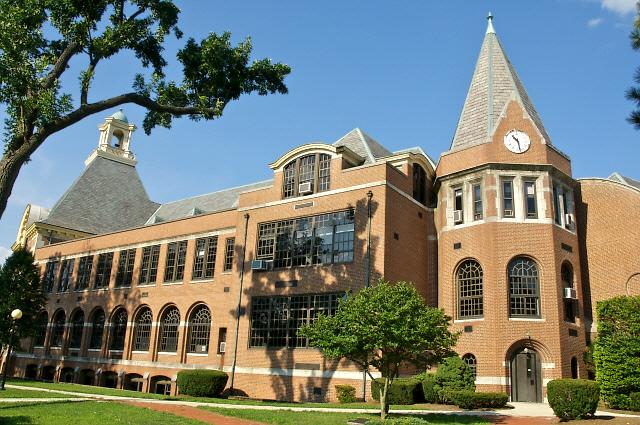Today’s Bergen Record featured a story about Ramsey’s new policy, entitled, “Maintaining a Non-Disruptive Environment in a School Setting,” which prohibits teachers from “campaigning” while on school property during school hours or during officially sanctioned school activities. Campaigning also is prohibited “while in the presence of students or in locations where students are likely to hear such messages.”
The article continued,
The policy defines “campaigning” as engaging in speech, displaying signs, posters or buttons or wearing clothing with a political message. The policy also bars employees from assembling on school property in an “intimidating” manner and handing out leaflets or fliers.Naturally, the teachers’ union (and some Ramsey residents) are opposed to this, offended by it, and a little upset. They are interpreting the rule to mean that they cannot, for example, talk about their contract negotiations – or even a national election – at the grocery store or on the street, if there might be children nearby who could hear them.
The District claims they are only concerned about potential disruption of classes.
There are a couple of things I find interesting about this. First, the story seems to focus on teachers doing things like putting “settle now” signs in their car windows (in reference to the union contract). This is similar to the actions of some of our Ridgewood teachers in 2005, when many Somerville teachers wore their REA t-shirts on Halloween instead of dressing in costumes, upsetting some kids at the school parade. Would that be considered "disruptive?" I also find the terms “campaigning” or “political” odd when applied to contract negotiations…who are the teachers campaigning, the 5 or 7 school board members?
The main thing that caught my attention in the story was the justification for the policy, that the District enacted the prohibition because such speech might be disruptive to learning. I recall* the landmark school free speech case, Tinker v. Des Moines Independent Community School District (1969), which dealt with students’ rights to free speech at school, and the attempt to censor student speech because it might prove disruptive to learning. One of the key elements of the decision held that speech could not be prohibited (or censored) because the authorities had “a mere desire to avoid discomfort and unpleasantness…” The U.S. Supreme Court held that the authorities cannot prohibit speech just because they are worried...they must have some sort of proof that the speech will be disruptive.
It seems to me that this Ramsey policy is attempting to do the same thing… prevent “speech” (defined pretty broadly, BTW) that might be disruptive. Nowhere in the story did the school board president refer to any actual instances of learning being disrupted.
Now, before you get all crazy and think I’m encouraging teachers to wear union t-shirts on Halloween, complain to students about their contracts during class, undertake job actions (like stop writing college recommendations), and the like, please know that I think all those (and other) actions are wrong. They’re unprofessional. They’re in bad taste, unsporting and petty. But unless they are actually interfering with teaching and learning, I think they’re covered by the First Amendment, just like students' right to wear black armbands to protest the Vietnam War was protected under Tinker.
*Student free speech issues have interested me, ever since my own run-in with the topic, when I edited my college newspaper. We tested the First Amendment with our annual April Fool’s issue, which contained two pages of jokes from the book Truly Tasteless Jokes. In our youthful envelope-pushing, we managed to offend every possible group – women, minorities, senior citizens, the handicapped, babies. The repercussions were awful: protests, threats, hate mail, many apologies on our part, stuff like that. But it was a great learning experience and, to its credit, the University of Denver supported our right to be tasteless in the exercise of our free speech. I’ve been interested in student free speech, in both high schools and colleges, ever since.
Anyway, it will be interesting to see what happens with the Ramsey policy. The Bergen Record story mentioned a similar policy in Tenafly, which is being challenged legally (and at great District expense) by a teacher there. I’ll keep an eye out for developments.





1 comment:
Very interesting article.
I don't think that student political free speech and teacher political free speech should be equal.
Students in k-12 are more or less required by law to be there, so I think that anything that forces them to hear a teachers personal political ideas on school grounds is suspect.
Of course on a daily basis, teachers are instilling values of character - respect, discipline, hard work, so there is always some crossover between "subject matter" and encouraging children on what to think or how to behave.
Post a Comment